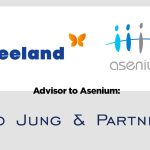EPC Industries Ltd. (EPC) has announced a joint venture with an Israeli Greenhouse firm Top Greenhouses Ltd (TGH). EPC will hold 60% stake in the JV while TGH will hold remaining 40%. India agriculture is currently grappling with multiple challenges - climate change, food security, and water scarcity. Protected Cultivation coupled with use of micro irrigation is one of the best technology interventions to address these challenges. With more focus on addressing climate change, food security and more corporates entering in agri-value chain, there is a huge potential for Protected Cultivation technology. Mr. Ashok Sharma, Managing Director, EPC Industries Limited said, "I am pleased to announce [the] joint venture with Top Greenhouses. It is an opportunity for EPC & TGH wherein both the partners can draw on the strengths of each other and grow protected cultivation business by providing access of hi-tech and relevant solutions to country at large. With more evident impact of climate change on agriculture, Protected Cultivation is an important method to raise agricultural productivity in the country."
Interview with Benjamin Grossman at APM Law
Please tell me about your involvement in the deal?
We were nominated by TGH, as an Israeli legal consultant due to our background and experience in Indian-Israeli technology deals, in order to consult TGH during the negotiation regarding the JV agreement and its terms, as well as to advise TGH regarding the various mechanisms and instruments ensuring the success of the collaboration.
Why is this a good deal for all involved?
The deal is a typical win-win deal for parties who would like to leverage Israeli technology and make it accessible to the Indian market. EPC gains an access to the technology and know-how of TGH in the field of secured agriculture, enabling EPC to also make it accessible to their target customers in India. TGH gains access to the practically infinite market of farmers who will benefit from TGH technology; it would be very difficult for TGH to gain access to an infinite market by independently basing it on TGH’s own resources and capabilities.
What challenges arose? How did you navigate them?
The main challenge derived from the vast differences between the two parties. TGH were requesting to ensure their full long-term involvement in the JV, in spite of TGH's relative modest size and resources compared to EPC. TGH also wanted to verify the attention and allocation of resources of EPC in the JV, regardless of its relatively modest magnitude in relation to EPC magnitude of activities. These challenges have been met by offering sets of balanced mechanisms and instruments securing the long-term interests and rights of both parties and the long-term viability and success of the JV.








